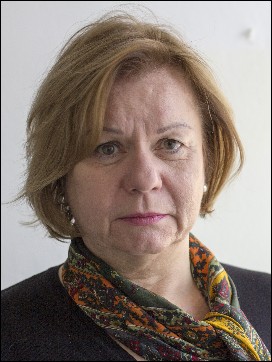First joint Forum UoS-SPU Universities Saulaimani
Main menu
Dr. Melita H. Šunjić

© Private picture
Born 1955 Rijeka, Croat family former Jugoslavia; came 1957 as refugee-
Summary Melita Šunjić: Europe & the escalating international refugee crisis & the Kurds
My contribution is looking at irregular migration of Kurds to Europe from different angles: First from the perspective of the migrants prior to departure, en route and in Europe and finally from a political point of view, analysing European asylum policy.
Irregular migration
We know from experience that considerable numbers of Kurds are moving to Europe in an irregular way, but the influx cannot be quantified. Kurds blend into migration flows while on route, upon arrival in Europe they are registered according to their citizenship not their ethnicity and remain statistically invisible.
International smuggling networks
Like all other groups, Kurds travel with the help of international smuggling networks and more crucially, they take their decisions based on the embellished and incomplete information they obtain from smugglers directly or from their Social Media accounts. Hence they leave not fully understanding the dangers of the journey ahead nor how long it will take to reach Central Europe and how difficult and expensive it will be.
They find out the hard way
If they manage to cross the Balkans and reach the old EU Member States they will find out the hard way that it was possibly not worth all the money and suffering.
Restricted asylum laws
Asylum seekers are not allowed to choose the destination country but have to stay where they are registered. Asylum procedures can take many years until a decision is final. Access to the labour market is restricted as is sometimes freedom of movement. Many asylum seekers are rejected and sent back forcibly after many years. Some leave voluntarily, despairing about the strains of integration or wanting to be reunited with their families back home.
Tough integration process
Integration is a tough process. It requires not only learning a new language but obtaining additional job skills, adapting to different ways of life and accepting that the structure and lifestyle of one’s own family is changing massively.
No joint EU refugee policy
At a political level, the European Union is failing to agree on a joint refugee policy. Nationalist parties with an anti-
Humanitarian operations massively underfunded
This could make sense from a European point of view if at the same time efforts to stabilise refugee populations in crises regions would be stepped up, but this is not happening either. Humanitarian operations in war-